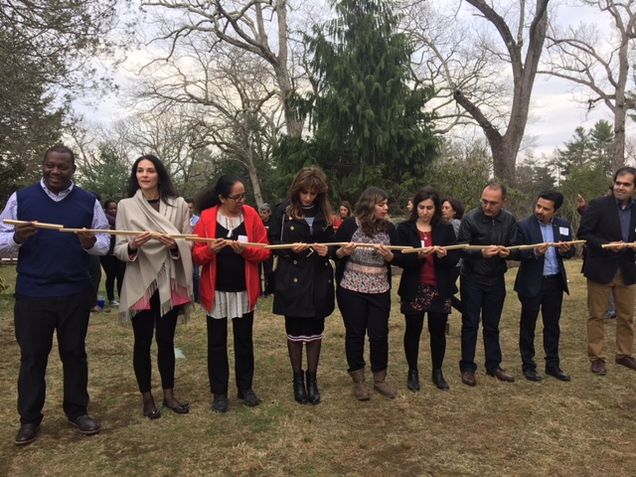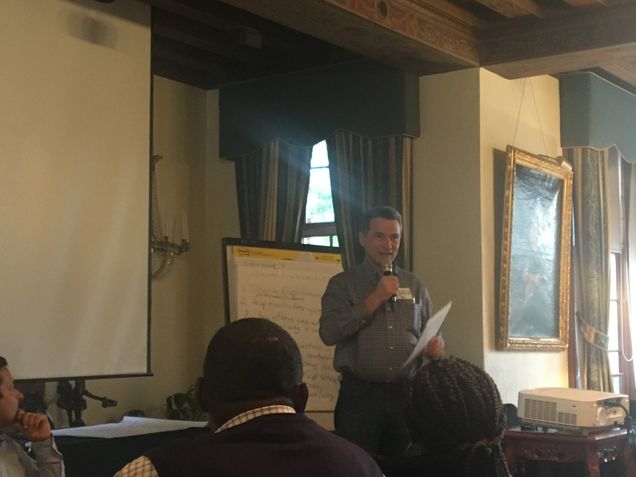Spring 2018 Symposium Retreat: The Challenges of Re-Entry

On Friday April 13th, the Fellows attended and participated in a day-long Symposium Retreat organized by MIT, Cornell and Boston University. This was the 7th annual cross-campus collaboration between the three universities. The focus of the Symposium was on the challenges and opportunities for Fellows as they begin their post-fellowship re-entry process. It is not uncommon for Fellows to experience a reverse culture-shock when returning to their home countries. This workshop strives to address some common issues with re-entry and coping mechanisms to deal with them successfully.
The cross campus collaboration began with opening remarks by the HHH Program Directors (Bish Sanyal from MIT, Francine Wilson Jasper from Cornell, and BU’s Jack McCarthy). The Fellows then moved into breakout groups to discuss what they’ve learned from each other and what they’ve learned about living in the U.S. The Fellows spoke about learning respect for other’s differences and cultures, as well as the importance of the Humphrey spirit and caring for one another. They also addressed the diversity of the U.S. as well as some of the challenges they’ve noted such as poverty and issues of individualism.

Professor Jack McCarthy then led the group in an experimental exercise on learning under uncertainty and complexity titled Pipeline (pictured above). Pipeline is a group cooperation and problem solving activity in which teams create a moving, free-standing “pipeline” by constructing a makeshift conduit as a metaphor for moving water from a remote well to a village or town in need. It requires coordination, communication and inclusive leadership – all fundamental skills which will be required of the Fellows as Global Leaders in their home countries.
After lunch, a presentation on The Challenges of Re-Entry outlined how to manage expectations and resistance upon returning home, including challenges returning to the work place. There was an emphasis on finding a strong support system, or a personal “board of directors” as Professor Jack McCarthy aptly noted, in order to help throughout the re-entry process.